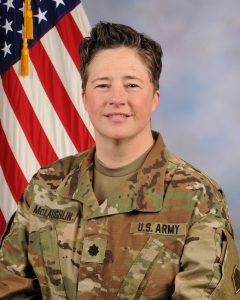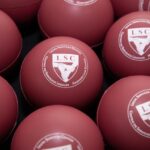The Disabled American Veterans (DAV) speakers series provides an annual forum at HLS for public servants and thought leaders to speak on issues of importance to the nation’s veterans. The series recognizes leading figures in the veterans’ community, raises awareness about the needs of veterans, sparks discussion about the public policies that most impact veterans, particularly those with service-connected disabilities, and serves as a call to action for veterans and non-veterans alike to help ensure the nation honors its commitments to those who have served.
The series is co-hosted by the Legal Services Center’s Veterans Legal Clinic and the Harvard Law School Armed Forces Association, and supported by Disabled American Veterans (DAV), a nonprofit that has a strong partnership with the Veterans Law Clinic at the LSC. DAV assists nearly 1 million veterans a year including through its local offices around the country, which help vets access the benefits they’ve earned, he said. DAV also advocates for veterans at the federal and state levels, helps vets find employment, provides free transportation to medical appointments for injured and ill vets, and creates and offers resources.
The inaugural DAV Distinguished Lecture was delivered in 2014 by U.S. Secretary of Veterans Affairs Robert McDonald. Other events in the series include, in 2016, Judge Robert Russell, founder of the nation’s first Veterans Treatment Court, discussing the future of the Veterans Treatment Court movement across the nation; in 2020, distinguished Black veterans including Will Gunn HLS ’86, former General Counsel for the US Department of Veterans Affairs, discussing race, the military, and veterans; and in 2022, renowned author Sebastian Junger and others discussing dangers of the military-civilian divide.
The October 2025 Disabled American Veterans (DAV) Distinguished Speakers Series at Harvard Law School featured an important conversation about the causes and consequences of wrongful military discharges. Each of the panelists was a veteran who experienced a wrongful discharge, suffered the harmful effects of that discharge over many years, and then finally obtained a measure of justice by pursuing a discharge upgrade. The voices of these veterans told a powerful story and underscored the urgent work to be done.
Opening remarks by Barry Jesinoski, DAV National Adjutant
Panel conversation moderated by Dana Montalto, Lecturer-on-Law, Senior Clinical Instructor, and Associate Director, Veterans Legal Clinic, Harvard Law School
Read the full event coverage by Harvard Law Today here
Watch the event recording below.
The October 2024 Disabled American Veterans (DAV) Distinguished Speakers Series at Harvard Law School featured Dr. Jon Santiago, a physician who is serving as the first Secretary of the Massachusetts Executive Office of Veterans Services, and the Honorable Lindsey Sin, Secretary of the California Department of Veterans Affairs (CalVet) and a veteran of the US Navy. It was moderated by Coleman Nee, a veteran of the US Marine Corps Reserves who served as the Massachusetts Secretary of Veterans’ Services from 2011 to 2015, and today is Vice Chair of the DAV Board of Directors.
Watch the event recording below.
The November 2022 Disabled American Veterans (DAV) Distinguished Speakers Series at Harvard Law School featured a discussion about the military-civilian divide with noted author and filmmaker Sebastian Junger. Hosted by the Veterans Legal Clinic at the Legal Services Center of Harvard Law School and Harvard Law Armed Forces Association.
In addition to sharing his own perspective on this critical issue, Junger was in conversation with DAV’s Brian Buckwalter; Navy veteran Robert Santiago, the City of Boston’s Commissioner of Veterans Services; and Harvard Law School student Phoebe Kotlikoff, Vice President of the Armed Forces Association and a current Navy reservist.
Watch the event recording below.
The February 2022 Disabled American Veterans (DAV) Distinguished Speakers Series at Harvard Law School featured a keynote address by U.S. Senator Kirsten Gillibrand (D-NY) followed by a panel discussion on burn pits and efforts to provide meaningful support and benefits for members of the military and veterans experiencing adverse health effects from burn pit exposures.
Sen. Gillibrand’s talk and the panel discussion touched on the significant adverse health effects of burn pits on thousands who served in the Iraq and Afghan wars, and efforts to pass meaningful legislation to take care of those harmed by burn pits.
Watch the event recording below.
The November 2020 Disabled American Veterans (DAV) Distinguished Speakers Series at Harvard Law School entitled “Race, the Military, and Veterans,” featured moderator Will Gunn ’86, former General Counsel for Department of Veterans Affairs, and panelists Delphine Metcalf-Foster, former National Commander of Disabled American Veterans; Christopher Parker, Professor of Political Science, University of Washington; and Barbara Ward, former Director of the VA Center for Minority Veterans.
Watch the event recording below.
The December 2019 Disabled American Veterans (DAV) Distinguished Speakers Series at Harvard Law School featured Lieutenant Colonel Shannon McLaughlin of the Massachusetts Army National Guard.

When Shannon McLaughlin was asked in 2010 to be the lead plaintiff in a federal lawsuit demanding that partners and family members of LGBTQ military service members and veterans receive the same benefits as those of heterosexual service members, it was far from an easy decision.
Read quotes and highlights here.
The December 2018 Disabled American Veterans (DAV) Distinguished Speakers Series at Harvard Law School featured Chief Judge Robert N. Davis of the U.S. Court of Appeals for Veterans Claims.
Chief Judge Davis—a Navy veteran who joined the Court in 2004—spoke about the history of veterans law, the origins of the Veterans Court, and present challenges facing the Veterans Court in its role reviewing benefit decisions of the U.S. Department of Veterans Affairs.

Chief Judge Davis also discussed the Court’s structure, accomplishments, and challenges. The Veterans Court is unique in terms of its exclusive jurisdiction over appeals from the Board of Veterans Appeals, as well as the way which the vast majority of appeals are decided by single-judge non-precedential decisions. The Veterans Court has a tremendous caseload, handling over 7,000 cases in 2018. Among its challenges, the Chief Judge stated that the Veterans Court is “grappling with how to efficiently decide more panels, decide class actions, and deal with an increasing case load.”
Read quotes and highlights here.
The November 2017 Disabled American Veterans (DAV) Distinguished Speakers Series at Harvard Law School featured Dr. David Shulkin, the Secretary of the Department of Veterans Affairs. Secretary Shulkin spoke about the challenges facing the VA, the VA’s efforts to serve the current needs of veterans, and his approach to leading the second-largest federal agency. Among other topics, he discussed veteran suicide, the needs of veterans with less-than-honorable discharges, innovations in the delivery of healthcare for veterans, and benefits appeal system reform.

Speaking about the 2014 VA healthcare waitlist crisis, Shulkin said, “Our success is the trust of the veterans we serve and we clearly lost that trust.” Describing his approach when he took over as Secretary, he explained, “The only way I know how to go about regaining that trust is by being open and transparent about problems and as you’re fixing problems letting people know.”
Shulkin also described the VA’s comprehensive definition of health—the Whole Health System—which informs how VA seeks to provide holistic services, including peer support, transportation, homelessness services, and even connections to legal services. “What other health system thinks that it is important to have an involvement with the courts and to provide legal assistance? … Making sure that we can address the full well-being of a veteran is critical.”
Read quotes and highlights here.
The November 2016 Disabled American Veterans (DAV) Distinguished Speakers Series at Harvard Law School featured Judge Robert Russell, founder of the nation’s first Veterans Treatment Court. Russell reflected on his founding of the Court in Buffalo, NY, and the future of the Veterans Treatment Court movement across the nation. Executive Director of DAV National Services and Legislation David Gorman kicked off the event followed by a discussion panel with Judge Robert Russell, Judge Eleanor Sinnott (Boston Municipal Court); Judge Mary Hogan Sullivan (Dedham District Court); and Major Evan Seamone (USAR, Professor at Mississippi College School of Law); to discuss the challenges and opportunities of veterans treatment courts going forward.
Watch the event recording below.
The October 2015 Disabled American Veterans (DAV) Distinguished Speakers Series at Harvard Law School featured former Governor of Mississippi, former Ambassador to Saudi Arabi and Former U.S. Secretary of the Navy, Ray Mabus (HLS ’75), who highlighted our duty to care for service members and veterans and to ensure that they receive the recognition and benefits that they so richly deserve. In particular, he noted that because many more of those wounded in action are surviving now than in the past, “They are going to need more rehab, more things, more systems, more help.” The Secretary praised DAV, the New England Center for Homeless Veterans, the Veterans Legal Clinic, and other veterans organizations for their work toward guaranteeing fairness and equity for all those who have served. The Secretary closed his speech by reciting the famous quote that those who serve their country “gave us their tomorrows, so we could have our todays,” to which he added that, for veterans, “we owe them their todays.”
Further coverage of the event was published by the Harvard Crimson and Harvard Law Today.
Watch the event recording below.
The November 2014 Disabled American Veterans (DAV) Distinguished Speakers Series at Harvard Law School featured Secretary of Veterans Affairs Robert A. McDonald who described VA’s strategic direction and, in part, the roles and opportunities for partnerships with VA across professional disciplines.
McDonald, speaking at Harvard Law School, said that from May to September of 2014 the VA had 1.2 million more appointments than during the same period a year earlier, and 98 percent of them were completed within 30 days of the patient’s preferred time. On top of that, he said, between May and November, 1.5 million authorizations were made for private care — a 50 percent increase over the same period a year earlier — for veterans who lived far from a VA clinic or hospital. The department also is reorganizing and building more facilities.
McDonald was introduced by U.S. Sen. Jack Reed of Rhode Island, who said that the nation must take care of its veterans, particularly those struggling now. “There are young veterans homeless, couch surfing, and living in cars. We can do better,” Reed said.
Read quotes and highlights here along with additional coverage here and here

